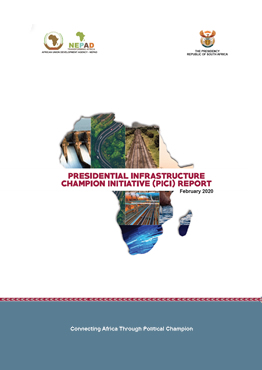In the ever-changing world economy, Africa is still seen as a continent of opportunity – a destination of choice for many investors and development actors. This is, by all accounts a new, more confident Africa. A continent now much more aware of its place in the world and determined to be a global investment haven. Africa’s economic growth rates are encouraging. In 2019, 37 countries in Africa experienced growth rates of 3% and above. Even better, six of the ten fastest growing regions of the world are in Africa. Commodity prices are recovering. Foreign direct investments in Africa increased in 2018 by 11%, compared to 4% in Asia, and a decline of 13%, globally (Africa Investment Forum 2019).
So, Africa is on the move: but it still needs a lot more, and even faster. Africa is ready to attract and absorb much more of these investments. Africa’s risk perceptions, while high, are often exaggerated. It does not match what data shows on risk and return performance on investments. The Moody’s Investor Service on project finance bank loans between 1983 and 2016, shows that Africa has one of the lowest project default rates in the world; much lower than Latin America, Asia, Eastern Europe, North America and Oceania.
Yet, investments are tilted to the regions with the much higher default rates. So, it is not about real risks. It is all about perceived risks. As such, despite the ongoing global economic turmoil, Africa still presents a high-growth market and needs to take advantage of this. Although rich in resources, the continent lacks the necessary infrastructure to reap the benefits of potential investment opportunities and to sustain its current economic growth and competitiveness. Bridging the gap in infrastructure is thus vital to economic advancement and sustainable development. However, this can only be achieved through regional and continental co-operation and solution-finding.
PICI was born out of a proposal by South Africa to accelerate regional infrastructure development enabled through the political championing of projects. The role of the champions is to bring visibility, unblock bottlenecks, coordinate resource mobilisation and ensure project implementation. It presents the opportunity for African Heads of State and Government to be actively involved in the development and implementation of projects.
Initially, seven projects were identified to be championed by the seven selected Heads of State and Government. Most of these projects were endorsed by the 16th AU Assembly in Addis Ababa, Ethiopia, while others, such as the LAPSSET Corridor Project, later joined the PICI family thus making the total number of championed projects eight. This has increased even further-Namibia and Cote D’Ivoire have also joined the PICI family. Sudan is the latest to request admission to the PICI.
South Africa, under the leadership of HE President Cyril Ramaphosa, chairs the PICI. The projects cover various transboundary infrastructure sectors, including transport, energy, information and communication technology (ICT), and transboundary water. The PICI was jointly conceptualised, developed and implemented by the AUDA- NEPAD Agency and the South African Presidency.

